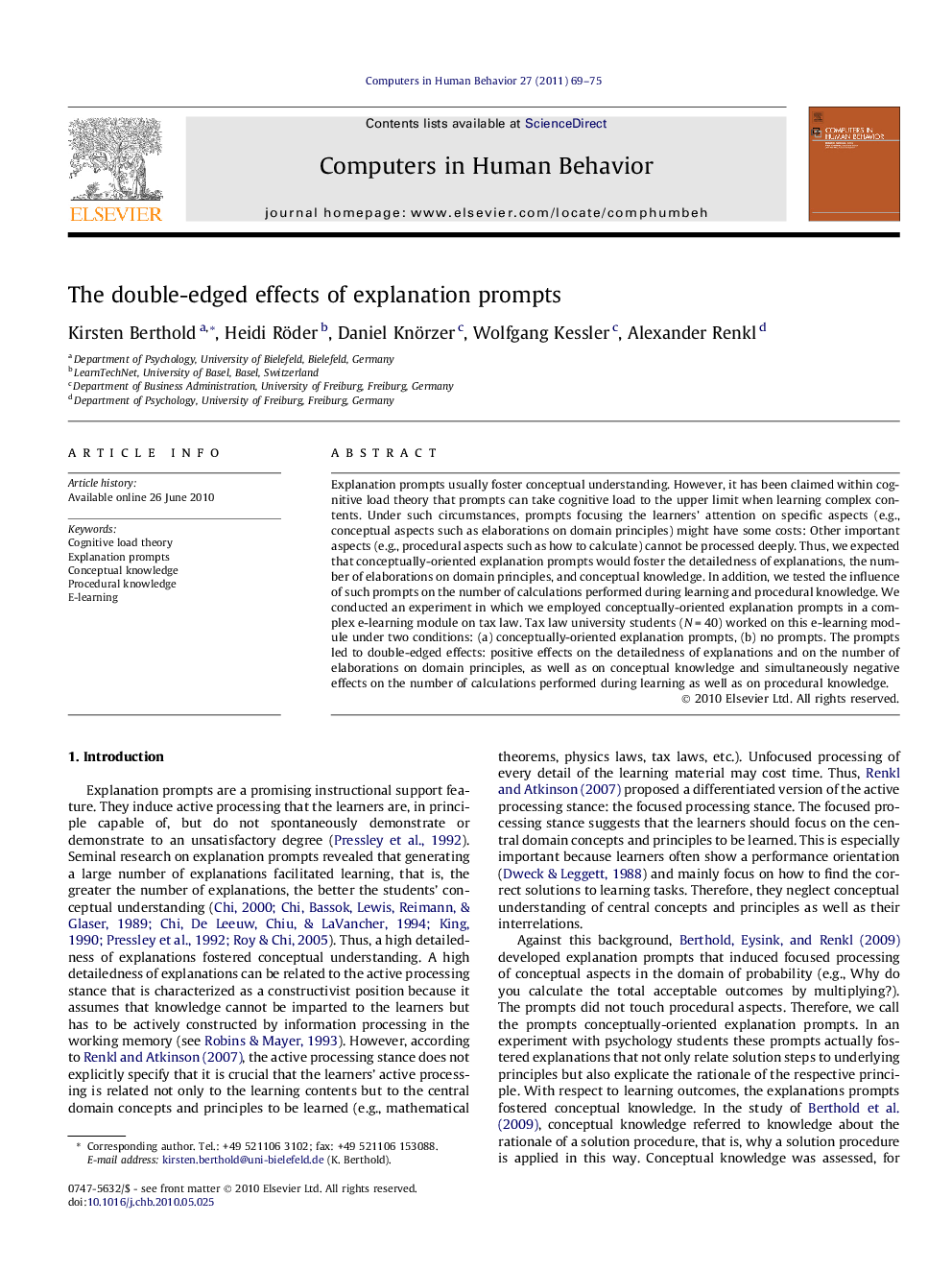| Article ID | Journal | Published Year | Pages | File Type |
|---|---|---|---|---|
| 351772 | Computers in Human Behavior | 2011 | 7 Pages |
Explanation prompts usually foster conceptual understanding. However, it has been claimed within cognitive load theory that prompts can take cognitive load to the upper limit when learning complex contents. Under such circumstances, prompts focusing the learners’ attention on specific aspects (e.g., conceptual aspects such as elaborations on domain principles) might have some costs: Other important aspects (e.g., procedural aspects such as how to calculate) cannot be processed deeply. Thus, we expected that conceptually-oriented explanation prompts would foster the detailedness of explanations, the number of elaborations on domain principles, and conceptual knowledge. In addition, we tested the influence of such prompts on the number of calculations performed during learning and procedural knowledge. We conducted an experiment in which we employed conceptually-oriented explanation prompts in a complex e-learning module on tax law. Tax law university students (N = 40) worked on this e-learning module under two conditions: (a) conceptually-oriented explanation prompts, (b) no prompts. The prompts led to double-edged effects: positive effects on the detailedness of explanations and on the number of elaborations on domain principles, as well as on conceptual knowledge and simultaneously negative effects on the number of calculations performed during learning as well as on procedural knowledge.
